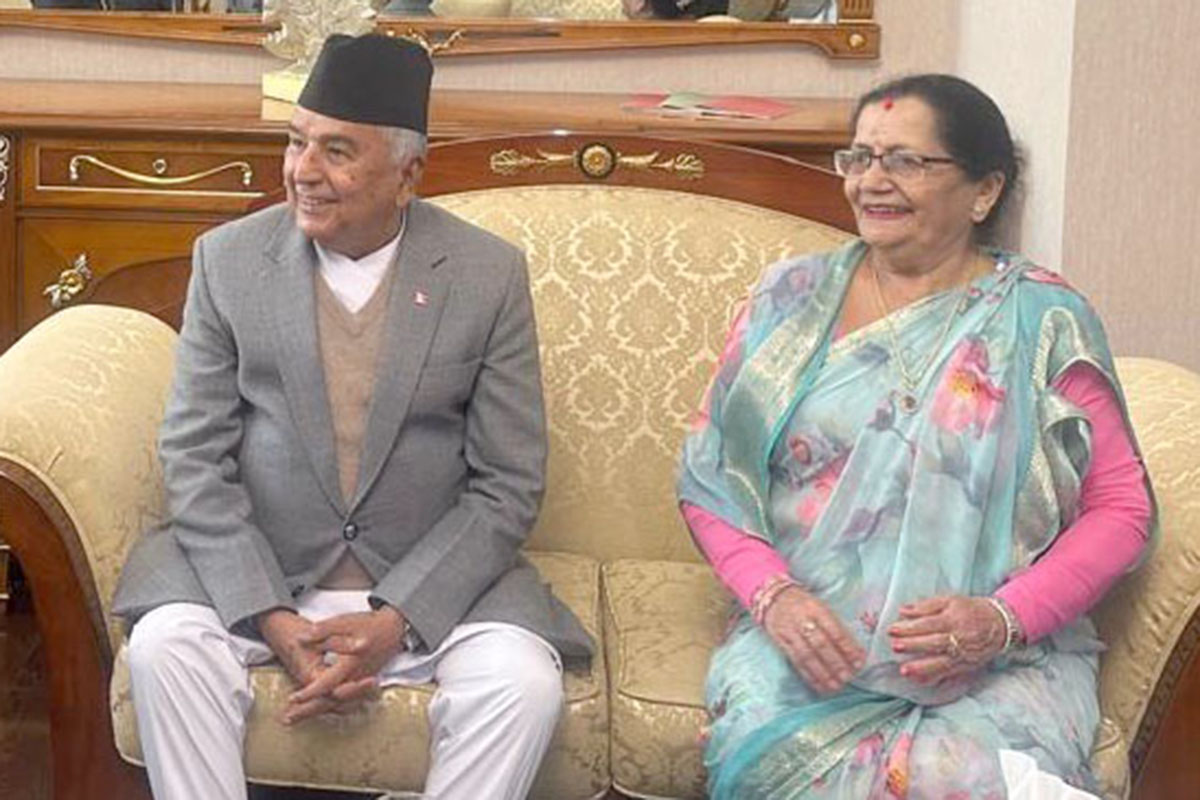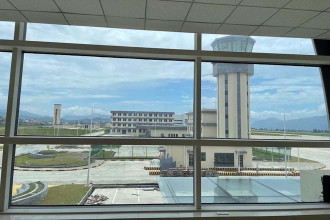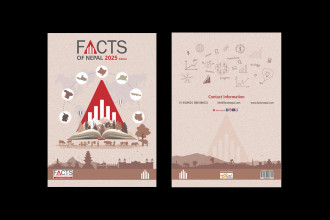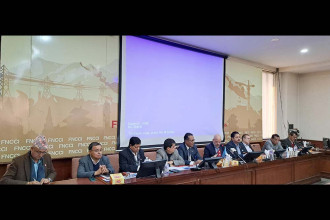
BAKU: President Ramchandra Paudel, who is currently in Baku, Azerbaijan, leading a high-level Nepali delegation to the 29th Conference of the Parties (COP29) to the United Nations Framework Convention on Climate Change (UNFCCC), has said he recognises that COP29 is also an opportunity for Nepal to present its case.
The conference began on Monday and will run until November 22.
In an exclusive interview with the Trend News Agency, Paudel said he recognises that COP29 is also an opportunity for Nepal to present its case.
Sharing his insights on sustainable development, strategies for climate adaptation, and ways to foster global cooperation for a better future, he said Nepal, as a party to the UNFCCC, gives utmost importance to COP29.
“As climate change is an escalating threat to human civilisation, culture, and also Mother Earth; we are now at a crucial juncture of human history. The gravity of the situation is that the UN has recently warned all of us that, if we fail to take appropriate measures to address the existing climate crisis, the temperature could rise up to 3.10 degrees Celsius by the end of this century. The global body’s message is loud and clear that currently, the world is amid climate-related predicaments and we all need to join hands to alleviate them. In this connection, it is contextual to mention here that Nepal has been committed to cooperating with the COP Troika Presidencies and their roadmap, which is in favour of ‘Solidarity for a Green World,’ he said during the interview under the 'COP for Hope', a special project of the agency.
Nepal also extends its fullest support to making the Baku COP29 a great success,” he said.
Priorities of Nepal at COP29
The president said Nepal will strongly put its case in the conference on the issues pertaining to climate-induced disasters and also seek the COP’s technological and adaptive solutions. “We need to dwell on them because, as you perhaps know, Nepal was recently hard hit by incessant and erratic rains and floods, which were responsible for the loss of more than 200 precious human lives and huge damage to critical infrastructures. The natural disaster has cost millions of dollars to a least developed and landlocked nation!” said Nepal’s president.
He went on to add that global warming has caused the snow-capped mountains to black.
“Glaciers have burst, causing massive destructions and posing serious threats to the people living downstream. We must understand that the crisis facing the mountains is a global issue, not just that of the mountainous countries. Actually, Nepal, which has been blessed with majestic Himalayas – the major source of fresh water in the region, deserves special attention from the Green Climate Fund (GCF) in view of Nepal’s high degree of vulnerability to climate change. Nepal deserves particular attention also because of its painstaking endeavours, yet with scant resources, in addressing the existing climate-related challenges. The generosity, on the part of the GCF, is critical as Nepal has already embarked on ambitious goals of climate action such as achieving carbon neutrality by 2045 and negative carbon emissions by 2050,” said Paudel.
Besides, as the president said, Nepal is also committed to increasing the forest cover to 45% by 2030, which has already been achieved.
“Therefore, at the moment, Nepal is in dire need of generous support from climate finance and also advanced technological know-how to enhance its capacities, which are imperative for Nepal’s transition to a climate-resilient future. Against this backdrop, our principal expectations from COP29, which is also widely dubbed as a ‘Finance COP,’ are that: the issue of mobilising adequate funds for the mitigation and adaptation actions against climate change, by dint of scaling up the pledge, is resolved. At the same time, we expect that the fund is allocated judiciously and in an unhindered way among needy nations,” he added.
Ensuring effective climate financing for small island countries at COP29
Paudel said he thinks that the small and resource-crunch nations, which are most vulnerable to climate change, deserve climate justice.
“The reason is that, while these nations are least responsible for carbon emissions, they suffer the most. For example, the irony, in the case of my country, is that despite Nepal’s insignificant contribution to greenhouse gas emissions, it has been a major victim of climate change phenomenon! The Climate Risk has categorised Nepal as the 10th most affected country. The impacts of climate change are glaring in all aspects of national life as there are reductions in agricultural products, domestic migrations taking place, stressed freshwater resources, loss of biodiversity, damage to strategic infrastructure, soil deterioration in addition to loss of human lives each year,” said Nepal’s president.
In this context, Paudel believes that Nepal and other least developed and island nations must raise their concerns about the climate funding system.
“The fund flow mechanism must be easy, sensible, and fast. We believe that funds should be in grants and allocated through a recognised national budgetary system. We would also like to see an enhanced volume of Loss and Damage Fund so that victim developing nations would not have to suffer further.
Another aspect, on which we need to ponder over and also act, is about the tying up of mountain and marine ecosystems. In light of their causal relationship, since the melting of glaciers on the mountains has linear and consequential impacts on the coastal ecologies, it is important to link both LDCs and Small Island Developing States (SIDs) institutionally. As the COP29 presidency has announced funding for SIDs, it is high time to act on this issue and I will try to draw the attention of all concerned on this pertinent subject. I personally believe that by bringing the LDCs and SIDs together shall help strengthen the alliance against the climate change phenomenon,” said Nepal’s president.
Climate Finance Action Fund
Paudel stated that Nepal is very positive about the idea of creating the Climate Finance Action Fund proposed by Azerbaijan.
“We believe the effective allocation of the funds is important for achieving our goals. I wish the fund mechanism will be simple, easy accessible in the priority and needs of the vulnerable countries,” he said.
Prospects for cooperation in renewable energy development
The president said he sees a prospect for Nepal and Azerbaijan strengthening their bilateral cooperation.
“Both of them can exchange their experiences – specifically in the realms of renewable energy development and harnessing of natural resources. As Nepal has now been doing well in the area of clean energy generation and its deployment, it can share its experiences with Azerbaijan. Similarly, Azerbaijan is successful in reaping natural resources such as limestone, copper ores, zinc, iron, etc. Her experience in these areas could help Nepal a lot as the latter too has been blessed with these natural resources. Such bilateral engagements, coupled with the transfer of knowledge and technology between them, could bring them further closer on other areas of cooperation too,” Nepal’s president concluded.
By RSS/Trend News Agency






